As global waste production continues to rise, the need for efficient waste management and recycling solutions has become more urgent than ever. One of the critical components of waste handling is **baling**, a process that compacts recyclable materials into dense, manageable bundles for transportation and processing. In this process, **baling tape** plays an essential role in securing and stabilizing bales, ensuring they remain intact during handling, storage, and transit.
Baling tape has become a preferred choice over traditional metal wires and plastic straps due to its strength, flexibility, and cost-effectiveness. This article explores how baling tape is used in waste recycling, its advantages, and why industries increasingly rely on it for efficient waste management.
What is Baling Tape?
Baling tape is a high-strength strapping material specifically designed for securing compacted waste materials in balers. It is commonly made from polyester, polypropylene, or other durable synthetic fibers that provide superior tensile strength and flexibility.
This tape is widely used in recycling centers, manufacturing plants, retail stores, and other industries that generate large volumes of recyclable materials such as paper, cardboard, plastics, textiles, and aluminum cans. It effectively holds compacted waste together, making it easier to transport and process.
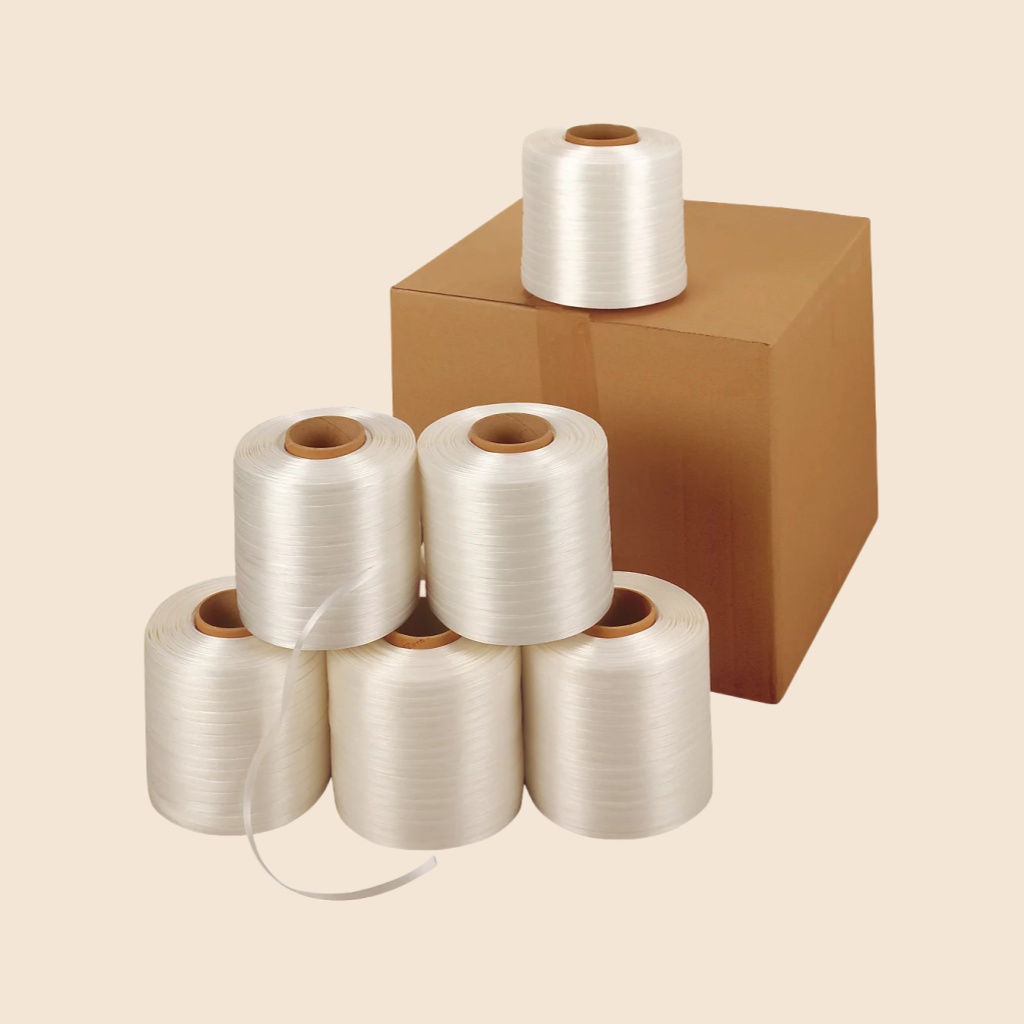
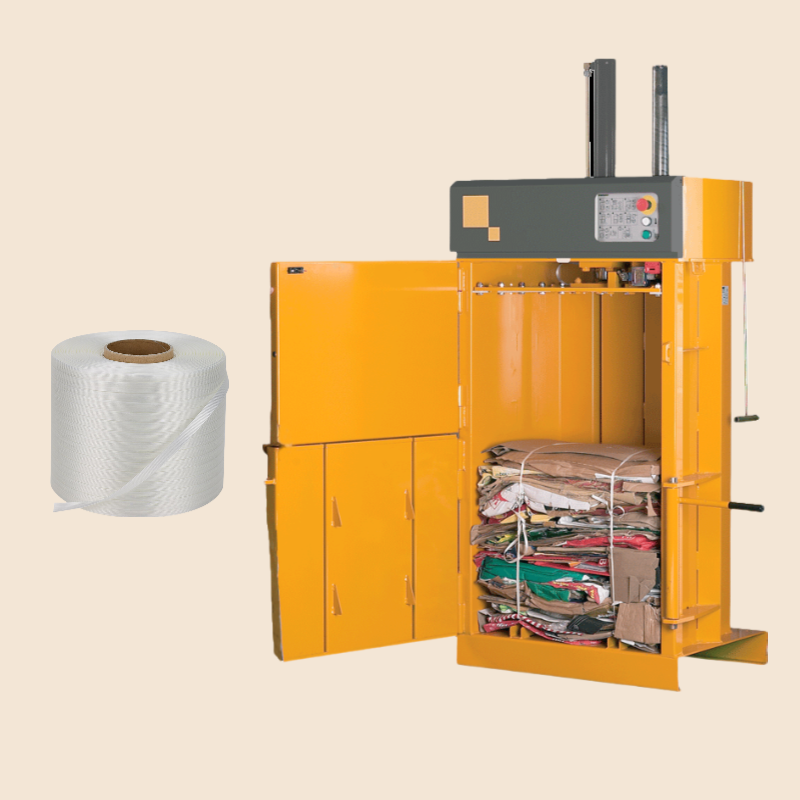
The Role of Baling Tape in Waste Recycling
1. Securing Bales for Efficient Handling
After recyclable materials are compacted in a baler, they must be securely bound to maintain their shape and structural integrity. Baling tape ensures that the compressed waste does not break apart during handling, storage, or transportation, reducing the risk of spills and workplace hazards.
2. Facilitating Transportation and Storage
Recycling facilities often handle large quantities of compacted materials that need to be transported to processing centers. Baling tape provides the necessary strength to keep bales intact, allowing them to be stacked and transported efficiently. Well-secured bales take up less space, optimizing storage and reducing logistics costs.
3. Enhancing Recycling Efficiency
Properly baled materials are easier to process at recycling plants. Loose waste takes longer to sort and process, whereas compacted bales bound with strong baling tape streamline operations, increasing overall recycling efficiency. This also helps recyclers meet industry regulations and sustainability goals.
4. Reducing Environmental Impact
Unlike steel wires, which require more energy-intensive production and disposal processes, baling tape is often made from recyclable materials, making it an eco-friendly option. It also eliminates the risk of injuries associated with sharp-edged steel wires, providing a safer alternative for workers handling bales.
Key Advantages of Using Baling Tape in Waste Recycling
1. High Tensile Strength
Baling tape is designed to withstand heavy loads and high pressure, ensuring that bales remain secure even when subjected to rough handling and long-distance transportation.
2. Flexibility and Ease of Use
Compared to rigid steel wires, baling tape is more flexible and easier to handle. It can be quickly applied and adjusted using simple strapping tools, saving time and labor costs.
3. Cost-Effectiveness
Baling tape is a more affordable alternative to traditional steel baling wires. Its lower cost per unit, combined with reduced labor and maintenance expenses, makes it a cost-effective solution for businesses engaged in recycling.
4. Corrosion and Weather Resistance
Unlike steel wires, which can rust and deteriorate when exposed to moisture, baling tape is resistant to corrosion and adverse weather conditions. This ensures the durability and reliability of baled waste, even when stored outdoors.
5. Improved Workplace Safety
Steel wires can have sharp edges that pose injury risks to workers during the baling and unbaling process. Baling tape eliminates this risk, providing a safer working environment while still delivering superior performance.

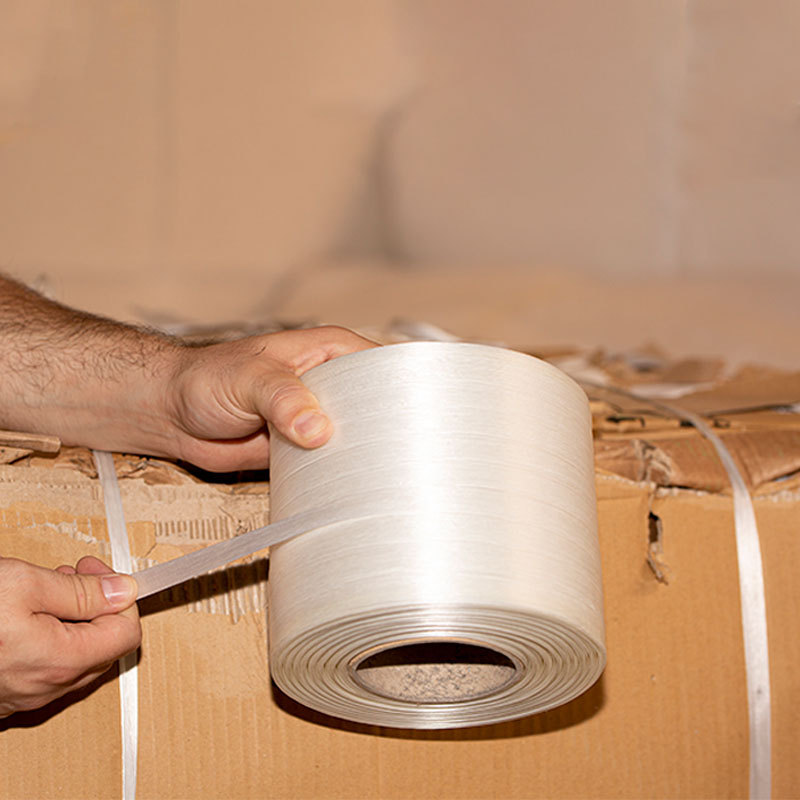
Applications of Baling Tape in Different Industries
1. Paper and Cardboard Recycling
Baling tape is widely used in paper mills and recycling plants to bundle newspapers, magazines, cardboard boxes, and office paper waste. This helps streamline sorting and reprocessing operations.
2. Plastic Waste Management
Plastics are among the most challenging waste materials to manage. Baling tape is essential for securing compacted PET bottles, HDPE containers, and plastic films for efficient recycling.
3. Textile and Fabric Recycling
Recycling centers dealing with discarded clothing, fabric scraps, and industrial textiles use baling tape to compress and bind materials for easier handling and transportation.
4. Scrap Metal and Aluminum Can Recycling
Although traditionally secured with metal wires, lightweight scrap metals such as aluminum cans and foil packaging can also be effectively bundled using heavy-duty baling tape.
5. Agricultural and Organic Waste Baling
Baling tape is also used in agricultural applications to bundle hay, straw, and other organic waste for composting or biofuel production. Its durability makes it ideal for securing bulky organic materials.
Choosing the Right Baling Tape for Your Needs
When selecting baling tape, businesses should consider several factors:
1. Tensile Strength – Choose a tape with the appropriate strength to handle the weight and density of your bales.
2. Material Composition – Opt for eco-friendly and recyclable options to align with sustainability goals.
3. Compatibility with Baling Machines – Ensure that the tape is compatible with the specific baler being used.
4. Weather and Moisture Resistance – If bales will be stored outdoors, use tape that can withstand exposure to environmental elements.
5. Cost and Efficiency – Consider both the upfront cost and long-term savings from reduced maintenance and labor.
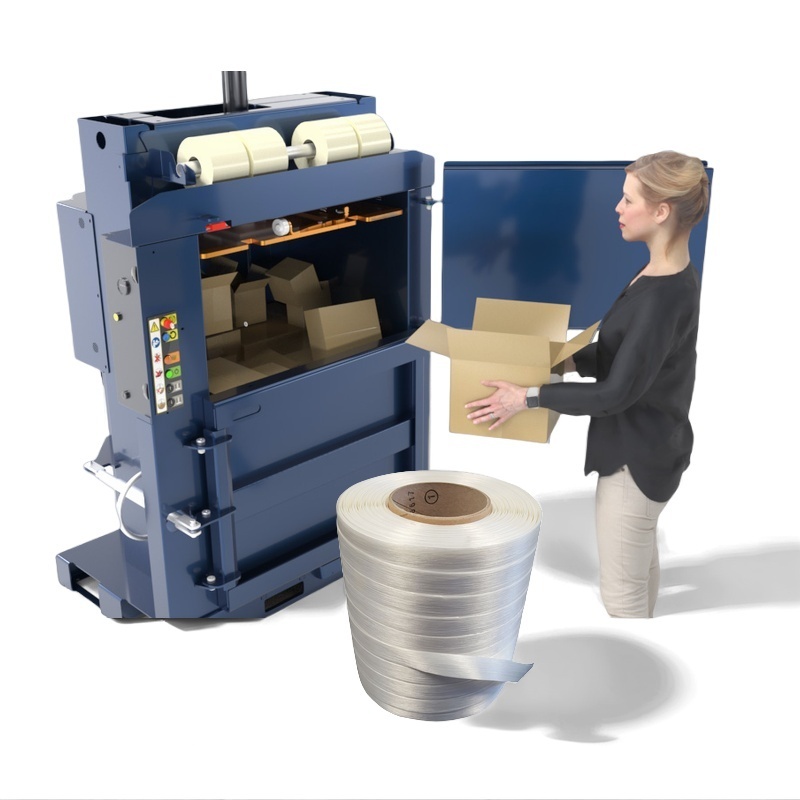
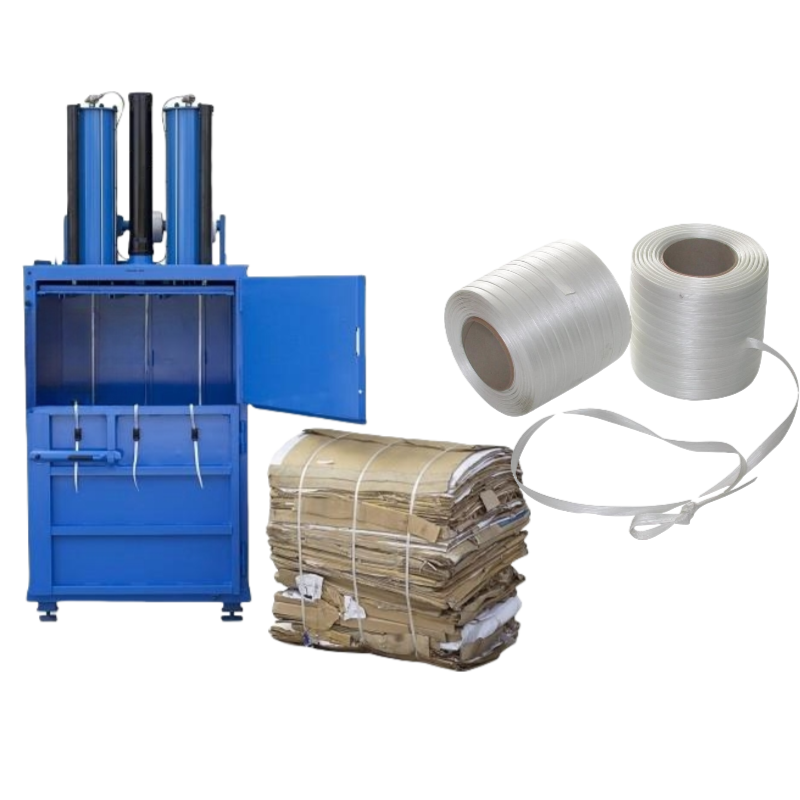
Conclusion
Baling tape has become an indispensable tool in the waste recycling industry, providing a reliable and cost-effective way to secure compacted materials. Its high strength, flexibility, and environmental benefits make it the preferred alternative to traditional steel wires and plastic straps.
As industries continue to prioritize sustainability and efficiency, the demand for baling tape is expected to grow, playing a vital role in improving waste management and recycling processes worldwide. By investing in high-quality baling tape, businesses can enhance their recycling operations, reduce costs, and contribute to a cleaner, more sustainable future.